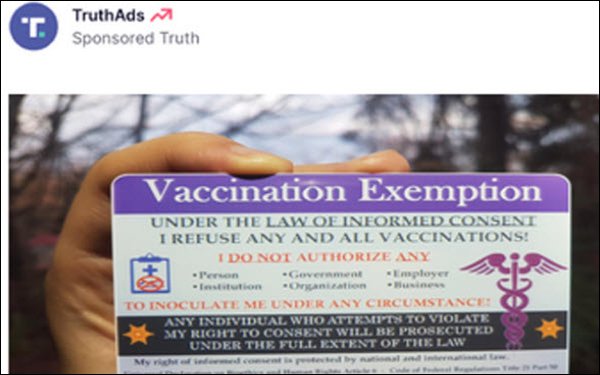
Mainstream advertisers have shunned
Donald Trump’s Truth Social platform, according to a new analysis.
Ads from major brands are “nonexistent” on the platforms; instead, it’s filled with “hucksters
and fringe marketers” pitching products like alternative medicine, diet pills, gun accessories and Trump-themed trinkets, according to an analysis of hundreds of ads on the social network by The New York Times.
(On Saturday, Gizmodo rounded up 11 of the "sleaziest" ads on Truth Social, including the one shown above.)
While a dearth of major brands is not unusual for far-right sites, the financial picture is such that Truth Social — launched in February 2022, after Trump was suspended by Facebook and
Instagram and banned by Twitter following the January 2021 insurrection at the capitol — could really use some serious advertising revenue.
advertisement
advertisement
The site raised about $37 million from
political donors, but is spending about $1.7 million per month, according to a former executive at its parent company, Trump Media & Technology Group — and is in danger of losing about $1.3
billion in additional funding due to two ongoing federal investigations.
Meanwhile, although it has gained momentum after a rocky start — with about 1.7 million unique visitors as of
last September — Trump has told confidants that he may opt to refuse to renew an exclusivity agreement that he has with Truth Social, which comes up in June, according to a recent Rolling
Stone report.
That contractually obligates
Trump to “first channel any and all social media communications” to Truth Social before posting the content to any other platforms.
The fact that he petitioned Meta to reinstate
him on Facebook and that he has now succeeded at that, in addition to having been reinstated on Twitter, thanks to Elon Musk (although Trump has yet to post again on Twitter) could support the reports
that he intends to dump or distance himself from Truth Social.
Meanwhile, it appears that Meta has little to be concerned about when it comes to any potential negative advertising
ramifications for its controversial Trump reinstatement.
Although Meta
said it has established new “guardrails” and will monitor Trump and other posters according to these, Meta’s decision has been slammed as dangerous by groups including the NAACP and
GLADD, and by media watchdogs that have pointed out that Trump’s postings have, if anything, become
more radical over the past year.
More than 500 of Twitter’s top advertisers pulled their ads after Musk acquired the platform, out of concern that their ads could end up near hate speech
or other inappropriate content, and daily ad revenue was down 40% year-over-year as of mid-January.
However, advertisers are far more dependent on and spend much more on Facebook than on
Twitter. In 2020, after more than 1,000 advertisers (out of a pool of 9 million) chose to respect a #StopHateForProfit Facebook boycott during the month of July, Facebook’s revenue rose 22% in the quarter, and the boycott subsequently
fizzled out.
IPG Mediahub clients have not asked about the potential effects of Trump’s Facebook return on their ads, possibly in part because Trump is perceived as having lost
some influence since leaving office, Erica Patrick, the unit’s senior vice president, paid social media, told Reuters.
But given advertisers' Twitter defections, or at
least pauses, another comment relating to the hands-off attitude toward Facebook might hit closer to the mark.
The “polarizing characters” that are on all social platforms are a
“moot point when brands need to drive sales and sign-ups," observed Darren D'Altorio, head of social at the Wpromote agency.
Agency executives do say that
advertisers will be watching to see how well Meta actually enforces its new guardrails.